Department Overview
Our Commitment
The Department of Wildlife Ecology and Conservation views the enhancement of inclusion, diversity, equity, and access as our shared responsibility. We embrace the critical role that a diverse departmental community brings to advancing wildlife-related studies and conservation, while fostering an environment for professional and personal growth. Together, we are committed to providing a safe and welcoming environment for individuals of all races, genders, ages, nationalities, religions, sexual orientations, identities, and abilities.
Who We Are
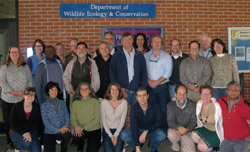 The Department of Wildlife Ecology and Conservation is composed of a vibrant, diverse and talented faculty with a balanced mixture of Assistant, Associate and Full Professors. We have long-standing expertise in wildlife management science, landscape ecology, human dimensions, protected lands management, quantitative and population biology, conservation biology, invasion ecology, and wetland ecology. Our expanding expertise in ecological valuation, disease ecology and global change strategically positions us to maintain leadership in natural resource management and conservation. We work closely with state, national, and international partners to tackle large-scale natural resource management issues like Everglades restoration, biological invasions, oyster restoration, and management of subtropical and tropical ecosystems worldwide. WEC also spearheaded the university's involvement as a hub in the NSF-funded National Ecological Observatory Network (NEON). Our ongoing and expanding international collaborations in such places as Ecuador, Brazil, Argentina, Paraguay, eSwatini, India, and China give our department a truly global perspective.
The Department of Wildlife Ecology and Conservation is composed of a vibrant, diverse and talented faculty with a balanced mixture of Assistant, Associate and Full Professors. We have long-standing expertise in wildlife management science, landscape ecology, human dimensions, protected lands management, quantitative and population biology, conservation biology, invasion ecology, and wetland ecology. Our expanding expertise in ecological valuation, disease ecology and global change strategically positions us to maintain leadership in natural resource management and conservation. We work closely with state, national, and international partners to tackle large-scale natural resource management issues like Everglades restoration, biological invasions, oyster restoration, and management of subtropical and tropical ecosystems worldwide. WEC also spearheaded the university's involvement as a hub in the NSF-funded National Ecological Observatory Network (NEON). Our ongoing and expanding international collaborations in such places as Ecuador, Brazil, Argentina, Paraguay, eSwatini, India, and China give our department a truly global perspective.
WEC by the Numbers
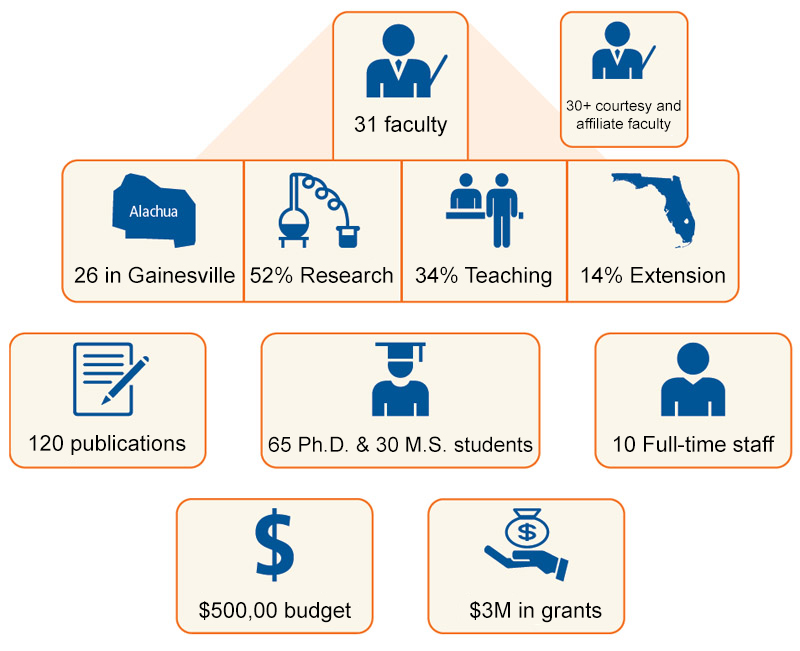
Our department is composed of 31 faculty members, 26 of which reside at the main campus in Gainesville, 30+ courtesy and affiliate faculty, and 10 staff members. Faculty effort is divided among research (52%), teaching (34%) and extension appointments (14%). In addition, the department maintains an operating budget of ~$500,000 per year. Our faculty produces ~120 publications annually, and currently trains ~65 Ph.D. and 30 M.S. students majoring in wildlife ecology and conservation or interdisciplinary ecology. Faculty typically bring in ~$3M in grants per year.
"The mission of the Department of Wildlife Ecology and Conservation is to foster education, expand knowledge, and reward scholarship, using multi-disciplinary approaches, for the purpose of understanding, managing, and conserving biological resources. The primary goal of our teaching, research, and extension programs is to develop and communicate the knowledge necessary for enhancing the conservation and management of wildlife and their habitats for the greatest aesthetic, ecological, economic, and recreational values".
The Academic Community
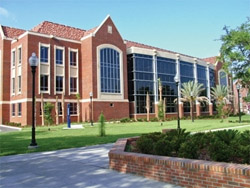 The University of Florida is among the top 10 publically funded research institutions in the United States. As a land grant university, UF is a center for teaching, research and extension in the fields of natural resources, agriculture, and land management; and is one of the few places those disciplines are successfully combined. The UF Institute of Food and Agricultural Sciences is one of the most highly ranked agricultural colleges in the world, and ranks similarly high in Natural Resources and Environmental Sciences programs. The university has an open and collaborative atmosphere which has resulted in numerous cross-college institutes and centers including the Emerging Pathogens Institute, the Florida Climate Institute, and the Water Institute.
The University of Florida is among the top 10 publically funded research institutions in the United States. As a land grant university, UF is a center for teaching, research and extension in the fields of natural resources, agriculture, and land management; and is one of the few places those disciplines are successfully combined. The UF Institute of Food and Agricultural Sciences is one of the most highly ranked agricultural colleges in the world, and ranks similarly high in Natural Resources and Environmental Sciences programs. The university has an open and collaborative atmosphere which has resulted in numerous cross-college institutes and centers including the Emerging Pathogens Institute, the Florida Climate Institute, and the Water Institute.
Students at WEC
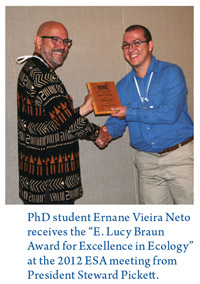
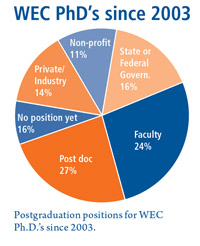
WEC faculty train approximately 200 undergraduate majors, focusing on 6 tracks: ecology, management, human dimensions, quantitative ecology, TWS Certification, and cooperative education. We also train about 65 PhD and 30 MS students at any one time, mostly supported on competitive grants and fellowships, and many of whom receive national and international recognition for their work. The WEC graduate student body is composed of 28% international students, 12% minority students and 50% female students. Our PhD students have an excellent history of finding productive jobs in the STEM and conservation workforce.
Alphabet Soup? We're a Bowlful!


WEC sits centrally within a rich web of professional and institutional natural resource connections both within and outside the University. Within, WEC hosts the Florida Cooperative Fish and Wildlife Research Unit (US Geological Survey-USGS), and has close ties with the Departments of Biology, Soil and Water Sciences, Environmental Engineering, Geography, Nature Coast Biological Station, Fisheries and Aquatic Sciences, Geomatics, School of Natural Resources and the Environment, Florida Museum of Natural History, Center for Latin American Studies, Center for African Studies, and Center for Wetlands to name a few. Within Gainesville, there are frequent collaborations with the USGS Wetland and Aquatic Research Center, USDA APHIS Wildlife Services Field Station, Florida Fish and Wildlife Conservation Commission Research Lab, and several US Fish and Wildlife Service National Wildlife Refuge offices. Two research stations are located nearby; Ordway-Swisher Biological Station–located in a large remnant sandhill pine ecosystem and a regional hub for the newly launched NEON ecological observing network– and Natural Coast Biological Station in Cedar Key.
Location, Location...
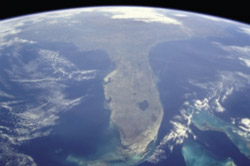 A modern biologist's Eden, Florida spans subtropical to temperate, xeric to sodden, grassland to coral reef, urban to unpopulated. Florida offers unique and unspoiled natural laboratories - one third of the state's landmass is now protected in conservation lands, 29 National Wildlife Refuges are located in Florida, the coasts are home to more National Estuarine Reserves than any other state, and Florida contains the longest stretch of undeveloped coastline and the largest roadless area in the lower 48 states. Florida also has the largest ecosystem restoration project in the world (Everglades), the largest conservation lands purchase program, and the largest state fish and wildlife agency in the U.S.
A modern biologist's Eden, Florida spans subtropical to temperate, xeric to sodden, grassland to coral reef, urban to unpopulated. Florida offers unique and unspoiled natural laboratories - one third of the state's landmass is now protected in conservation lands, 29 National Wildlife Refuges are located in Florida, the coasts are home to more National Estuarine Reserves than any other state, and Florida contains the longest stretch of undeveloped coastline and the largest roadless area in the lower 48 states. Florida also has the largest ecosystem restoration project in the world (Everglades), the largest conservation lands purchase program, and the largest state fish and wildlife agency in the U.S.
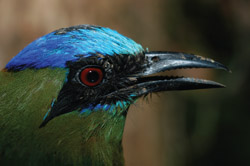 Florida is also a compelling place to ask questions of relevance for the rest of the world. Florida's low lying coasts are highly vulnerable to sea level rise, and to changes in the severity of both tropical cyclones and freezing weather. Biomass production, alternative energy and their potential ecological effects are also of deep interest to this highly agricultural state. With the second highest number of exotic and introduced species in the US, Florida has a very direct interest in understanding and managing these threats. With over 9.9 million acres in conservation lands, Florida is a leader in ecological restoration techniques and ecosystem management.
Florida is also a compelling place to ask questions of relevance for the rest of the world. Florida's low lying coasts are highly vulnerable to sea level rise, and to changes in the severity of both tropical cyclones and freezing weather. Biomass production, alternative energy and their potential ecological effects are also of deep interest to this highly agricultural state. With the second highest number of exotic and introduced species in the US, Florida has a very direct interest in understanding and managing these threats. With over 9.9 million acres in conservation lands, Florida is a leader in ecological restoration techniques and ecosystem management.
Florida is also a perfect location for tropical ecologists, with a long history of cultural and economic connections with the Caribbean and South America and the largest two airports in the US serving South America. UF has been deeply rooted in Latin American and African conservation and is a way station for visiting tropical ecologists from all over the world.
We're International
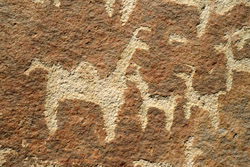 The Department has a 35-year history of biodiversity research, training conservation professionals, and building conservation programs in tropical and temperate regions around the world. WEC faculty direct internationally recognized, cross-campus programs (Tropical Conservation and Development Program, Program for Studies in Tropical Conservation, and the Southern Cone Conservation Leadership Initiative). We have trained more than 250 graduate students and conservation practitioners from Latin America, Africa and Asia. The Latin American Wildlife Congress founded by WEC faculty brings together more than 600 scientists and practitioners from Latin America biannually, and international partnerships developed by WEC faculty, such as a new cooperative agreement between UF and the Argentine National Science Council, facilitate research on problems of global significance. WEC's study abroad programs and leadership in NSF IGERT training programs help undergraduate and graduate students confront and solve problems across the globe with study experiences in New Zealand, Belize, Botswana, Brazil, eSwatini (formerly Swaziland), and Ecuador. UF is a founding member of the Organization for Tropical Studies. WEC graduate alumni also occupy leadership positions in conservation. They are now developing the first graduate programs in wildlife conservation and ecology in their home countries, directing research and conservation programs for the Wildlife Conservation Society, Conservation International, and The Nature Conservancy, and heading governmental natural resource management agencies.
The Department has a 35-year history of biodiversity research, training conservation professionals, and building conservation programs in tropical and temperate regions around the world. WEC faculty direct internationally recognized, cross-campus programs (Tropical Conservation and Development Program, Program for Studies in Tropical Conservation, and the Southern Cone Conservation Leadership Initiative). We have trained more than 250 graduate students and conservation practitioners from Latin America, Africa and Asia. The Latin American Wildlife Congress founded by WEC faculty brings together more than 600 scientists and practitioners from Latin America biannually, and international partnerships developed by WEC faculty, such as a new cooperative agreement between UF and the Argentine National Science Council, facilitate research on problems of global significance. WEC's study abroad programs and leadership in NSF IGERT training programs help undergraduate and graduate students confront and solve problems across the globe with study experiences in New Zealand, Belize, Botswana, Brazil, eSwatini (formerly Swaziland), and Ecuador. UF is a founding member of the Organization for Tropical Studies. WEC graduate alumni also occupy leadership positions in conservation. They are now developing the first graduate programs in wildlife conservation and ecology in their home countries, directing research and conservation programs for the Wildlife Conservation Society, Conservation International, and The Nature Conservancy, and heading governmental natural resource management agencies.
Extension
WEC's extension programs (https://wec.ifas.ufl.edu/extension/) address issues and provide information related to the use, conservation, management, and appreciation of wildlife and other natural resources. Our programs reach decision-makers, natural resource professionals, and lay audiences. Impacts of our programs benefit large and small property owners and both rural and urban clientele. WEC faculty disseminate extension information via mass media, field experiences, and traditional educational materials and presentations and form partnerships with public and private organizations. WEC faculty have published over 220 online extension publications and many extension programs have won state and national awards. The impact of WEC extension programs are far reaching and have been very successful in creating a statewide group of educated and engaged citizens and professionals working towards goals of biodiversity conservation, management, and restoration.

